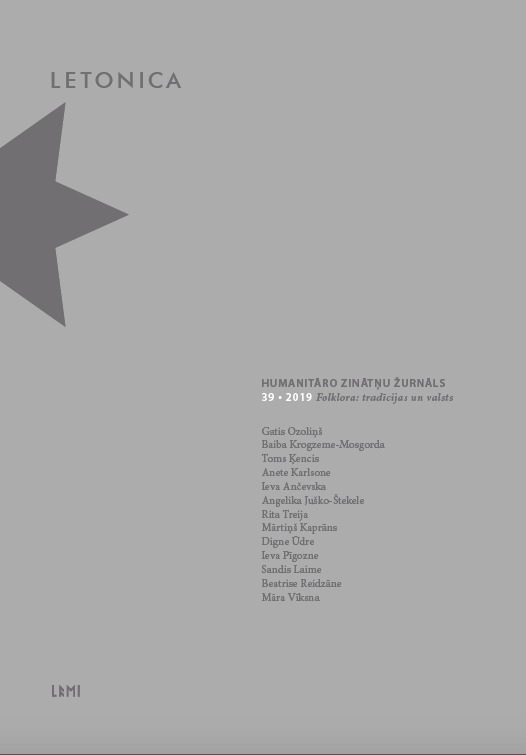Radošais pagrieziens latviešu folkloristikā
The Creative Turn in Latvian Folklore Studies
Author(s): Toms ĶencisSubject(s): Customs / Folklore, Oral history, Politics and society, WW II and following years (1940 - 1949), Post-War period (1950 - 1989), Politics of History/Memory, Politics and Identity
Published by: Latvijas Universitātes Literatūras, folkloras un mākslas institūts
Keywords: Stalinism; soviet folklore; disciplinary history; Institute of Folklore; propaganda;
Summary/Abstract: The article provides a disciplinary micro-history of Latvian folklore studies after the Second World War. After the Soviet occupation in 1944, the discipline in Latvia was integrated into the Stalinist knowledge production system. Central institutions of the field embraced agenda of collecting and researching Soviet folklore – a hybrid genre of Soviet content in a presumably traditional form developing in the Soviet Union since the 1930s. This enterprise took creative turn in 1949–1953 with various initiatives like international seminars, conferences, the Communist Party decrees, and publications in official press requiring active participation of folklore researchers in creation of new Soviet folklore. The article follows the adaptation of this turn in Latvian folklore studies and its central body the Folklore Institute, analysing its institutional as well as intellectual facets and the role of key personalities. Special attention is paid to various levels and dynamics of relationships between centre and periphery in dissemination of knowledge and power. The article maps public representation of Soviet folklore and its creation, looking also into how it was conceptualized within the theoretical framework of Latvian folklore studies of the day, including the inter-institutional dynamics. On the basis of several case studies, agents of new folklore creation are described, including a propaganda specialist at a collective farm, a young poet, and a primary school teacher. In addition, ‘a struggle for peace’ as a dominant ideological framework is highlighted in creation of new folklore. The creative turn went into the wrong direction and soon after Stalin’s death the whole project of Soviet folklore was abandoned at least within the academia. The article shortly characterizes this process on the All-Union level and its fallout in Latvian folklore studies.
Journal: Letonica
- Issue Year: 2019
- Issue No: 39
- Page Range: 40-58
- Page Count: 19
- Language: Latvian

